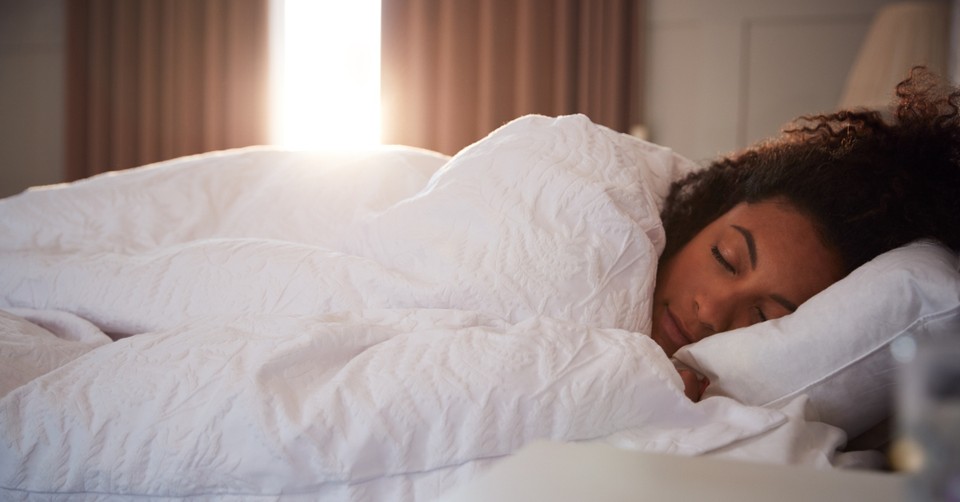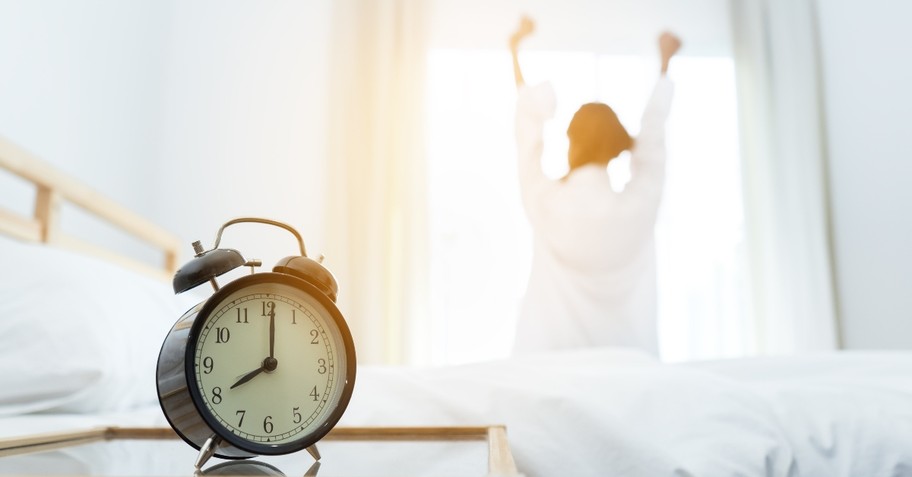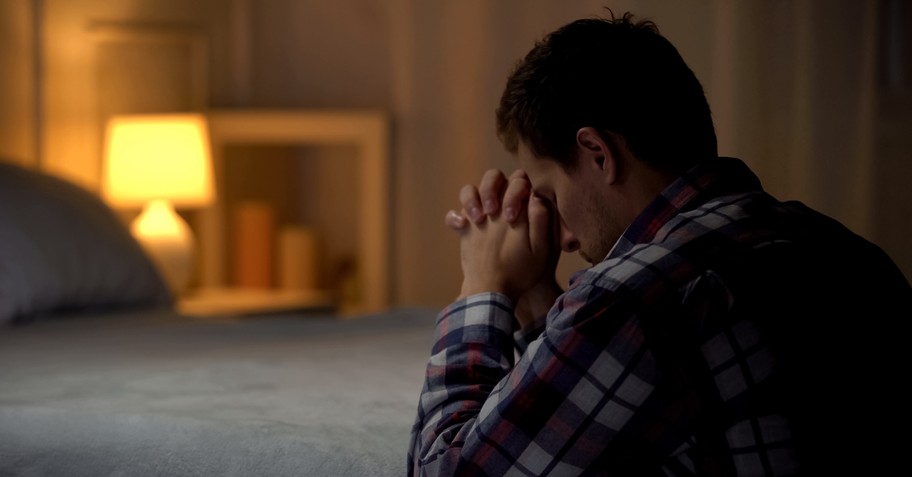Sleep, the Bible, and Why You Should Really Take a Nap

Statistics indicate the average person, who lives roughly 79 years on Earth, spends about 26 of those years sleeping, plus seven more years trying to get to sleep. Sleep boosts the well-being of every aspect of our lives, and lacking sleep can damage our ability to function well. God knew what He was doing when He designed us to need sleep!
Why Did God Create Us to Require Sleep?
In the beginning of time, God ordained deep sleep for Adam (Genesis 2:20-22). As people sleep, God does good things in and for them—like making a wife for Adam! The human need for sleep is a reminder of our limitations and dependence on the Lord. Sleep is humbling, because it shows us our fragility.
Rest—taking a break from labors—is important, and God illustrated the priority of rest when He paused from His creative work on the seventh day of Creation (Genesis 2:1-3). He built a pattern of rest into His creation.
As a gift from God, sleep is pleasant and it is sustaining. As people sleep, the sovereign God works to help bodies rest, energize, and heal for greater efficiency during waking hours. Sleep is part of a healthy lifestyle as well as an act of faith in God’s providence and protection. A desire for healthy rest and sleep should characterize God’s children. Also, in the Bible God sometimes spoke to people through dreams and visions.
God is able to grant sleep even in the challenging and tumultuous circumstances of life. Jesus slept in the midst of storm because His trust was in His Father, not the circumstances of life (Matthew 8:23-27). He believed the Father would keep His Anointed One safe.
Photo credit: ©Getty Images/monkeybusinessimages

Does God Sleep?
Some people believe God needs to sleep because they read in Genesis 2:2 that God “rested” from His work. Amanda Hovseth explains that word “rest”—which in the Hebrew is shabath —means to stop what you are doing. The verse does not say God slept or ever needs to sleep. The Bible clearly says God the Father does not slumber—which is a light state of sleep, like dozing—and neither does He sleep (Psalm 121:3-7). The believer is under His constant oversight and providential care.
Because God does not sleep, we can! We can always come to Him in prayer and know He is ready to listen. We also know that He is watching over us and nothing can touch us except by His design or permission. We can safely place our lives in His sovereign hands and “lay down and sleep” (Psalm 4:8).
On the other hand, we know Jesus, the Son of God, did sleep while on Earth, because in His humanity, Jesus grew tired.
What Does the Bible Say about Sleep?
It’s been said there are more than 100 references to sleep in the Bible, and many more references for rest, slumber, and dreams. Here are a few key passages about sleep.
Sleep is good (Jeremiah 31:26; Proverbs 3:24; Psalm 3:5; 4:8; 127:2).
Sleep comes from a God who is good to us (Psalm 116:7).
Sleep and peaceful rest are gifts Jesus desires to give us (Matthew 11:28-30; John 14:27).
Sleep can escape us for many reasons (Job 7:1-4; Psalm 91:1-11; Matthew 6:34; 11:28).
Sleep misused is neither good nor wise (Proverbs 6:9-11; 19:15; 20:13; Ecclesiastes 5:12).
Sleep must be kept in balance (Psalm 127:2; Matthew 26:45).
Sleep is a matter of faith in the God who never sleeps (Psalm 46:10; Psalm 121:3-4; 1 Peter 5:7).
Photo credit: Unsplash/Farid Askerov

5 Types of Sleep Found in Scripture
The Bible refers to at least five types of sleep, and it is important to distinguish between them.
The most common is the good physical sleep we all require after a day’s work (Ecclesiastes 5:12a). This is the state of the body in normal, unconscious rest and recuperation. Scientists say light sleep is characterized by REM, or rapid eye movement — the dream stage. There is also a deeper sleep (non-REM), which is what Eutychus experienced when he fell from a window in Acts 20:9. Deep sleep represents roughly 75 percent of sleeping time.
A second type, the sleep of slothfulness, is a misuse of good sleep that leads to all kinds of problems like poverty and addictions (Proverbs 6:4-11; Proverbs 19:15).
A third type is related to judgment—the destruction of the wicked when they stand in opposition to the Lord. Jeremiah foretold Babylon’s destruction, when the evil empire would be made to “sleep a perpetual sleep, and not wake” (Jeremiah 51:37-39).
A fourth kind of sleep is not literal, but figurative. Revelation 3:1-3 refers to the sleep of not being prepared, like the Church in Sardis. When a person is apathetic and oblivious to spiritual danger, the Bible says that person needs to “wake up.” Spiritually-sleepy people are unprepared to deal with temptation, their own death, and the return of Jesus. They need to be watchful and sober, and wake up from their spiritual comas!
The fifth type is the temporary sleep of death. Both Jesus and Paul spoke of this kind of sleep (John 11:11-14; 1 Thessalonians 4:13-14). It is only the body under consideration in temporary death (Daniel 12:2), and the body will be resurrected in the future.
Note: another type of sleep is not biblical—so called “soul sleep”—which is taught by Jehovah’s Witnesses and Seventh-day Adventists. Brian Leicht addresses this in “Awake Beyond the Grave: What the Bible Says about Soul Sleep.”
Photo credit: ©Getty Images/gorodenkoff

How Can Sleep Be a Spiritual Discipline?
In Sleeping for Christ, Christian behavioral scientist and apologist Jay Medenwaldt wrote, “Sleep can be a spiritual discipline,” because sleep deprivation can create all kinds of side effects and affect performance in alertness, concentration, emotion regulation, health, self-control, our diets, scripture memorization, and many other functions and activities.
“The amount of sleep we need is biologically determined,” Medenwaldt said, “and there is nothing you can do to change it.” Our personal circadian rhythm governs our sleep cycle and alertness throughout the day, so self-discipline to ensure high quality sleep is crucial. Medenwaldt suggests ways to create better quantity and quality of sleep, such as a consistent schedule, creating an environment for good sleep, and watching food and beverage in the evening hours.
“God designed us to require sleep and determined how much sleep we need,” Medenwaldt said. And though getting enough high quality sleep probably won’t cure all problems, “it might be able to fix some of your issues or play a role in doing so.”
Shane Heilman at The Psalms Project transformed himself into a “morning person” so he could spend time with God. In Awake, O Sleeper: Getting Up Early, Heilman suggests going to bed early, praying before falling asleep, getting the body into a routine, and remembering that—for the Hebrews—the day starts in the evening. It sets the tone for the following day. There are many Bible examples. The woman of noble character in Proverbs 31:15 rose up early with a plan and purpose for her life and home. Abraham, Jacob, Moses, Joshua, David, and Jesus also rose up early (Genesis 19:27; 28:18-19; Exodus 9:13; Joshua 6:12; 1 Samuel 17:20; Mark 1:35; John 8:2).
“Let’s face the brutal facts,” Heilman said. “We sleep in when we’re apathetic about our life’s mission and purpose.”
Photo credit: ©Getty Images/champlifezy

What Does the Bible Say about Sleep Fasting?
Ruth Mellinger wrote, in “Fasting from Sleep: God’s Call in the Night,” that sleep fasting attunes our hearts to God’s nighttime songs, opens our ears to hear God’s voice, and can even trigger supernatural intervention. “The practice of sleep fasting has been a part of godly conduct since ancient times,” Mellinger said.
The Bible teaches us there are times it is wise to sacrifice sleep for a greater spiritual good. Communing with our Father is often more needful than getting physical rest. Jesus is our example; He rose early to pray and sometimes prayed all night (Luke 6:12).
Jesus recognized how crucial sleep fasting was the night before His crucifixion. Knowing His disciples would flee in fear and deny Him, Jesus urged them to pray rather than sleep so they would “not enter into temptation” (Matthew 26:36-46). When they fell asleep rather than seeking God and praying at that crucial time, Jesus rebuked them.
Some Habits and Sins Can Ruin Sleep
Some bedtime habits can ruin sleep. Brightly-lit screens—technology with blue light screens—can trick the brain into waking up, making it harder to fall asleep. It’s best to keep the computer, phone, and television turned off. Late-night eating and drinking can lead to digestive issues. Alcohol is a stimulant, and caffeine after lunchtime keeps some people awake. Activities that rev up the body—even moderate exercise—make it hard for some people to sleep.
Instead of these things, relaxing activities like reading, listening to quiet music, meditating, or calming pursuits can contribute to sleepiness. It’s also good to know when to just get out of bed for a while, instead of staying in bed and staring at the clock.
Sinful attitudes rob people of sleep as well. Fear is a sleep-killer. When Jesus was asleep in the stern of a boat during a furious storm, the disciples grew fearful and anxious. Jesus addressed this, saying, “Why are you so afraid? Have you still no faith?” (Mark 4:38-40). Mark Ballenger, writing about the truth that helps us sleep, said, “Because Jesus often prayed when everyone else was asleep, this allowed Him to sleep when everyone else was in panic.”
The Bible also says much about the sinful sleep of sloth or laziness. The sluggard loves sleep and sleeps too long. This can lead to hunger and poverty. Slothfulness gets worse over time as the sluggard begins to make excuses for sleeping. Sloth is often associated with gluttony and drunkenness. Lazy people waste time rather than using it effectively. It’s wise to sleep at the right time and in the right amount.
Photo credit: Unsplash/Prottoy Hassan

A Prayer for When You Can’t Sleep
Though people need sleep now, it is unlikely believers’ bodies will need sleep in heaven. While no one can know for sure, in their changed bodies, believers will likely exalt and serve the Lord day and night. Sleep likely won’t be a top priority.
But for now, Christians need sleep every night, and proper rest when they are exhausted or stressed. It’s beneficial to make sleep a matter of prayer.
Father God,
I know you understand when thoughts swirl around in my head and sleep will not come. I ask you to calm my troubled spirit as I remember how much You love me. You are my refuge and strength. You are my hope. I cast all my cares into Your hands, knowing they are safe with You and You will work on my behalf. I exchange my anxious thoughts for Your perfect peace. I ask for wisdom for any choices I must make in the morning.
I thank You, Father, that You will never waste any pain or losses I face. You are near when my heart breaks and I weep upon my bed. What a comfort it is to know that You never sleep. You are constantly ready and willing to hear my prayers and come to my aid. Thank You for the promise of Your presence as I sleep in faith and peace tonight.
In Jesus’ name,
Amen
Sources
ApplyGodsWord.com, “What Does the Bible Say about Sleep? Truth to Help You Sleep?”
ChristianCourier.com, “The Biblical Concept of Sleep”
GotQuestions.org, “Why Is Sleep/Sleeping Necessary?”
DesiringGod.org, “Three Reasons to Get Some Sleep”
Related articles
21 Bible Verses for Sleep and Rest When Your Soul Needs Peace
6 Reasons Why Trusting God Helps You Sleep Better
How to Rest in the Lord When Your World Is Upside Down
Photo credit: ©Getty Images/Motortion
Originally published March 27, 2023.









